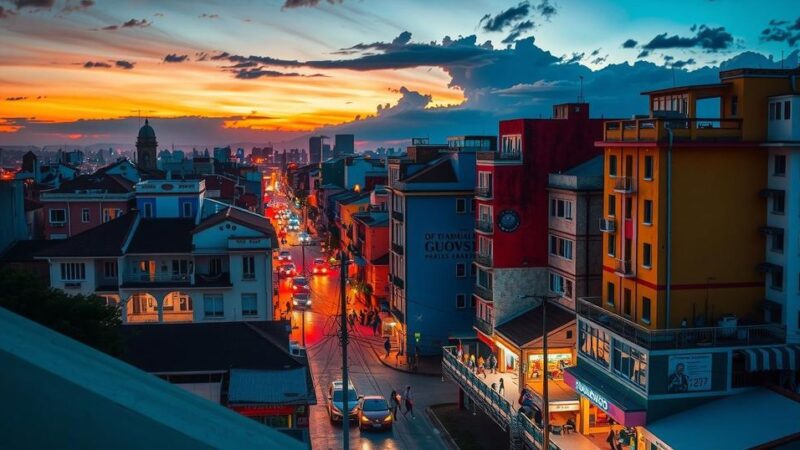On Wednesday, Mozambique holds a crucial presidential election to determine the successor to President Filipe Nyusi after his two terms. With approximately 17 million registered voters, the election includes candidates from the ruling Frelimo party and various opposition figures. Key issues such as a prolonged jihadist insurgency, economic hardship, and corruption are central to the campaigns, while concerns about electoral integrity remain. Immediate vote counting is planned, with official results expected within 15 days.
Mozambique is gearing up for a consequential presidential election as citizens prepare to cast their votes on Wednesday. This election is significant as it will determine the successor to President Filipe Nyusi, who has served two terms. An estimated 17 million registered voters will have the opportunity to choose not only the next president but also 250 members of both parliament and provincial assemblies. Dominating the political landscape is the ruling party, the Front for the Liberation of Mozambique (Frelimo), which is anticipated to maintain its long-standing control. Nevertheless, four key candidates are competing, each representing various visions for the nation, which wrestles with the challenges of a prolonged jihadist insurgency in the north and the impacts of extreme climatic conditions along its extensive coastline. The candidates include David Chapo from Frelimo, who is a former governor and aims to leverage his experience from Inhambane province, pivotal for the nation’s tourism sector. Challenging him is independent candidate Venacio Mondlane, a banker and forestry engineer who has garnered considerable support under the motto “Save Mozambique, this country’s ours.” He was a prominent figure in the previous year’s local elections, where he claimed victory but was reportedly denied it. Lutero Simango represents the Democratic Movement of Mozambique, which appeals to younger voters with its focus on employment and economic equality, while Ossufo Momade heads the Mozambique National Resistance (Renamo), continuing the legacy of its previous leader. Mozambique grapples with profound issues including an active insurgency linked to the Islamic State since 2017, which has displaced over 1.3 million people. Aside from insecurity, the country faces critical development challenges exacerbated by severe drought conditions due to El Niño, leading to widespread hunger. Frelimo’s administration has recently been marred by corruption scandals, particularly the tuna bond scandal, leading to significant financial scrutiny and loss of international support. The election process will see immediate vote counting, with preliminary results released as they come in. The official tallies are expected to be finalized within 15 days by the National Election Commission, followed by a validation from the Constitutional Council, allowing room for any objections from participating parties.
The upcoming presidential election in Mozambique on Wednesday represents a pivotal moment for the nation, as it marks the end of President Filipe Nyusi’s tenure. With a history of Frelimo’s dominance since gaining independence from Portugal in 1975, the current election focuses on land security, economic stability, and the handling of natural disasters, which have all influenced the political climate. The backdrop of an insurgency in Cabo Delgado, which has resulted in significant humanitarian concerns, further complicates the electoral landscape, emphasizing the need for effective governance and innovative solutions to address ongoing crises. Recent electoral processes have been under scrutiny, and this election aims to restore faith in the democratic system amidst prior allegations of misconduct.
In summary, the presidential election in Mozambique is poised to be a vital decision-making point for the nation as it seeks to address critical issues such as insecurity, economic instability, and corruption. While Frelimo remains the frontrunner, the emergence of independent and opposition candidates suggests a push for change among the electorate. The resolution of this election will not only impact the leadership of Mozambique but could also shape the future trajectory of the country’s governance and development amidst ongoing challenges.
Original Source: apnews.com






